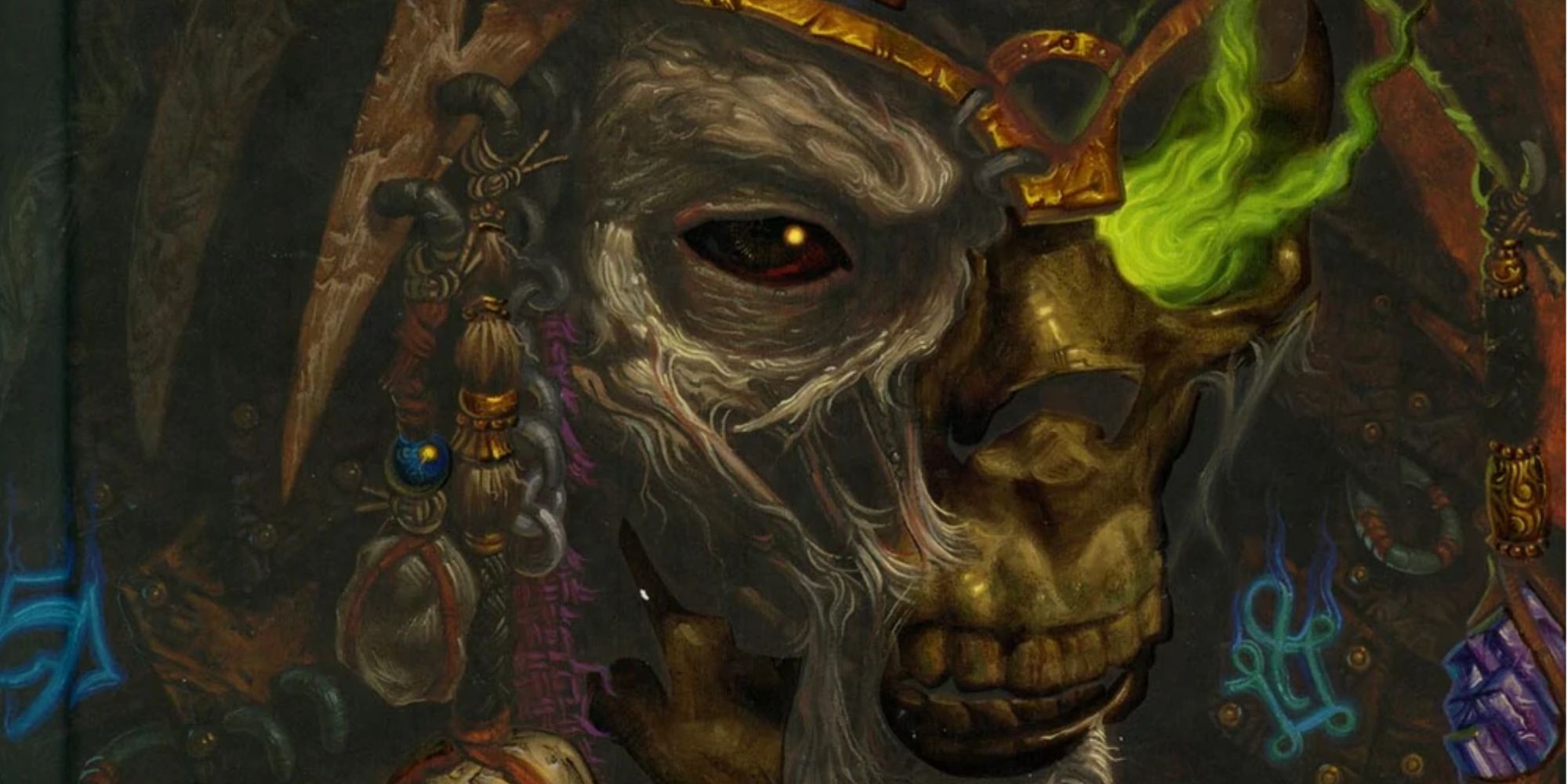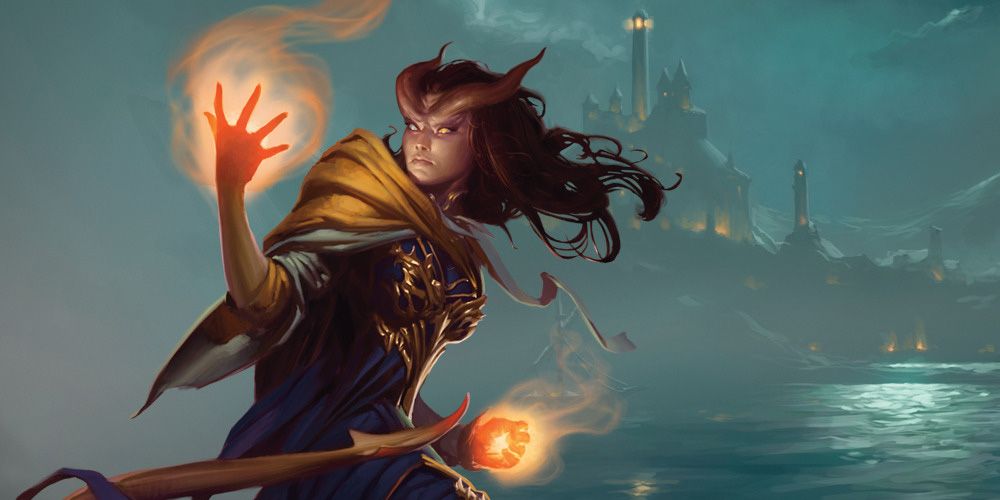The latest Unearthed Arcana article for Dungeons & Dragons on One D&D is making a change to how the D&D magic system defines spells, as they are now broken into three categories: Arcane, Divine, and Primal. In the history of D&D, the ability to tap into magic and cast spells has involved different methods, with some learning spells through painstaking rituals, while others gained powerful spells from worshiping the gods. The monsters in D&D often had a natural ability to use magic, with dragons having arcane might flowing through their veins.
The actual source of magic in D&D differs in each setting. In the world of Krynn from the Dragonlance setting, magic is provided by the three moons and their gods, with each of the three orders of mages claiming allegiance to one of the moons. In the world of Athas from Dark Sun, there is no magical source, so spellcasters must drain the life force from plants to power their spells. The most well-known source of magic is D&D's Weave in the Forgotten Realms campaign setting, which is a magical aura that is wrapped around the world and is maintained by the goddess of magic.
The D&D 5e Player's Handbook has 6 dedicated spellcaster classes: bard, cleric, druid, sorcerer, warlock, and wizard, while Tasha's Cauldron of Everything added a 7th, in the artificer. There are also subclasses for the other classes that provide the ability to cast spells, such as the Arcane Trickster for the rogue and the Eldritch Knight for the fighter, as well as classes with a handful of spells, like the paladin and ranger. All of these classes will now draw magic from three different sources, as detailed in the new Unearthed Arcana on D&D Beyond.
One D&D's Magic System Is Broken Into Arcane, Divine, & Primal Spells
In One D&D, all spells are broken into three categories: Arcane, Divine, and Primal. The Arcane spells are used by artificers, bards, sorcerers, warlocks, and wizards, as these are people who tap into the D&D multiverse's supply of magic. The Divine spells are used by clerics and paladins, as these are provided by deities. The Primal spells are used by druids and rangers, as these are provided by the land itself, as well as the elemental Inner Planes.
This change to the designation of spells makes a lot of sense, as it's something that a lot of fans use anyway when describing how magic works in each setting. The D&D multiverse is full of magic, yet people draw on it in many ways and these designations help explain what the character is actually tapping into when they cast a spell. The new Unearthed Arcana also lists the D&D cantrip level spells and level one spells in their categories, with the rest of the spells expected to appear in future articles that reveal upcoming content for Dungeons & Dragons.
Source: D&D Beyond


